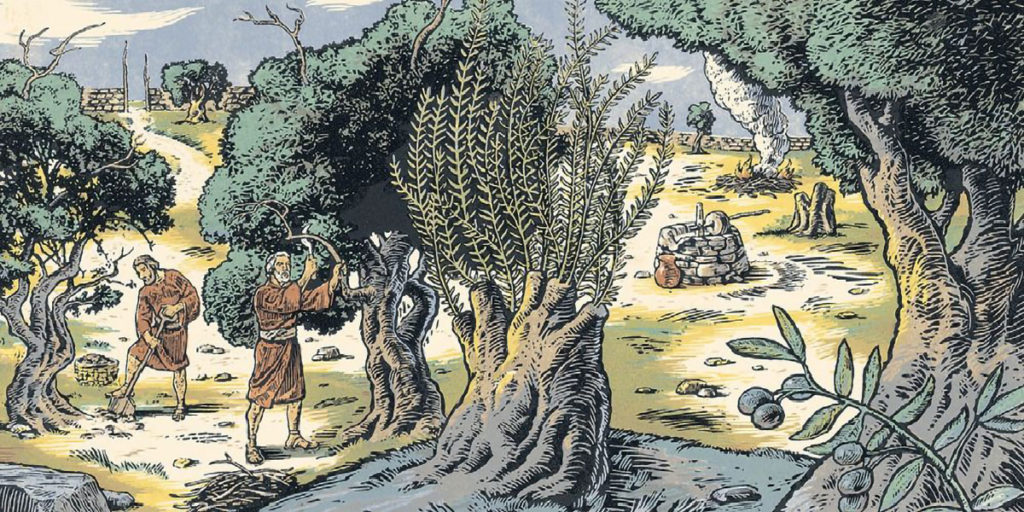I found an interesting concept about anxiety and stumbling while I was reading the fourth chapter of the book of Jacob. I always emphasize that you should read in context. When you read scriptures like a novel or a journal, you will see and understand more.
So here is the context: Jacob has been teaching the people of Nephi in the land of Nephi about Christ (this is about 545 to 422 B.C.) He explains that the Jews in Jerusalem did not see that Christ would be the coming messiah. They killed the prophets preaching such things, and that is why Lehi left Jerusalem. Now, Jacob, as a progeny of Lehi, is trying to explain this history to his people. He says that the Jews (their ancestors back in Jerusalem) became blind by “looking beyond the mark” — which does not mean that they were seeking and studying and praying to understand the mysteries. “Looking beyond the mark” was looking beyond Christ — the mark was Christ. They “despised words of plainness” and “sought for things they could not understand.” Jacob says that God took away the plainness and gave them what they wanted — “many things which they could not understand — because they desired it,” which causes them to stumble and reject the stone upon which they can build a safe foundation.
Jacob then answers the question of how the Jews will build on the safe foundation and “become the head of their corner.” Honestly, it seems impossible. I think I have related my own experience with a Jewish friend — she could believe the story of Joseph Smith, but not the story about Jesus Christ. Jacob then tells his people that he will unfold this mystery to them,
if I do not, by any means, get shaken from my firmness in the Spirit, and stumble because of my over anxiety for you. (Jacob 4: 18)
As I read this, I realized that anxiety could cause you to stumble. Which makes sense. Stumble is a visual word. It does not mean to fall flat on your face. I think of stumble as when you stub your toe, or when you stumble over a toy your kid left in the hallway, or while jogging your toe catches a rock, and you stumble forward, but recover. I suppose you can stumble and then fall flat down on the ground, but I think the word “stumble” implies recovery. The Jews will recover from their stumble. We often recover from our stumbles. Even the dictionary explains it this way: to trip or momentarily lose one’s balance, almost fall. I have seen my husband in his college years, running the 400 intermediate hurdles, hit one hurdle, stumble, and finish strong.
Other scriptures talk about not being a stumbling block to others. Which we can investigate further in another post.
However, it is worth noting that Jacob says he hopes that his anxiety over them will not cause him to get shaken from his firmness in the Spirit and stumble. In times like now, we need to overcome our anxiety and not let it overtake us causing us to stumble, which is not always that easy. Even for a great prophet like Jacob — he had anxiety.
He then goes on to relate the story of the Olive Trees. God’s plan unfolds in such a miraculous way.
Image: Allegory of the Olive Tree, by Brad Teare.



